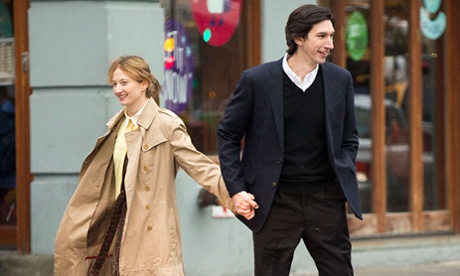
Saverio Costanzo is the Italian film-maker whose 2006 movie In Memory of Me, about a student training for the priesthood in Venice, seemed to me initially intriguing but finally frustrating, and I have to say something similar applies to his latest film, in competition here at Venice.
It is set in New York - unsentimentally stripped of all the usual glamour and sentimental charm - and the story is a painful and frightening one, about post-natal depression and psychological breakdown. There are valuable things in this film, and intelligent performances from its leads, Adam Driver and Alba Rohrwacher. But it is finally marred by a jarring and crassly misjudged melodramatic finale – which is a terrible return on our emotional investment in the drama.
Nothing in the film, in fact, quite matches the gentleness and sensitivity of its opening. Jude (Driver) gets farcically trapped in a restaurant toilet with Mina (Rohrwacher). It’s a meet-cute which leads to romance, then marriage and Mina gets pregnant. It should be wonderful, with a lovely story to tell their child about how mum and dad met. But then Mina gets nervous, anxious, unwilling to leave the apartment or see doctors and obsessed with how modern medicine and food additives are a threat to her baby; she refuses to feed him anything but special vegetables grown in her own roof garden. Gradually, the baby loses weight as Mina becomes more disturbed; Jude becomes mad with worry – when will it be time to take the baby away from her?
It is a tense, claustrophobic nightmare, played with sincerity and force, particularly by Adam Driver. But a strident orchestral score keeps intruding, dark chords telling us how scared we ought to be, and it is as if Costanzo is not content with an ultra-real relationship drama, and wants his film to be some kind of heavy-handed horror-thriller too.
Eventually, the movie fails some basic plausibility tests as Mina – a supposedly disturbed and naive soul who finds the modern world so threatening – suddenly finds the savvy to get a court order and mobilise cops and social services against Jude and also his sharp-tongued mom Anne (Roberta Maxwell). Finally, it is Anne who will bring down the narrative curtain on all this in an exasperatingly absurd way.
It is a real shame, because the film appeared at first to be in possession of good and relevant ideas, and a persuasively appropriate way of putting them across. But Costanzo doesn’t know where to take the story (I should admit here I haven’t read the original novel Il Bambino Indaco, or The Indigo Child by Marco Franzoso, which Costanzo himself adapted) and it simply collapses in a ridiculous muddle. But the performances of Driver and Rohrwacher lend some weight to the movie.

